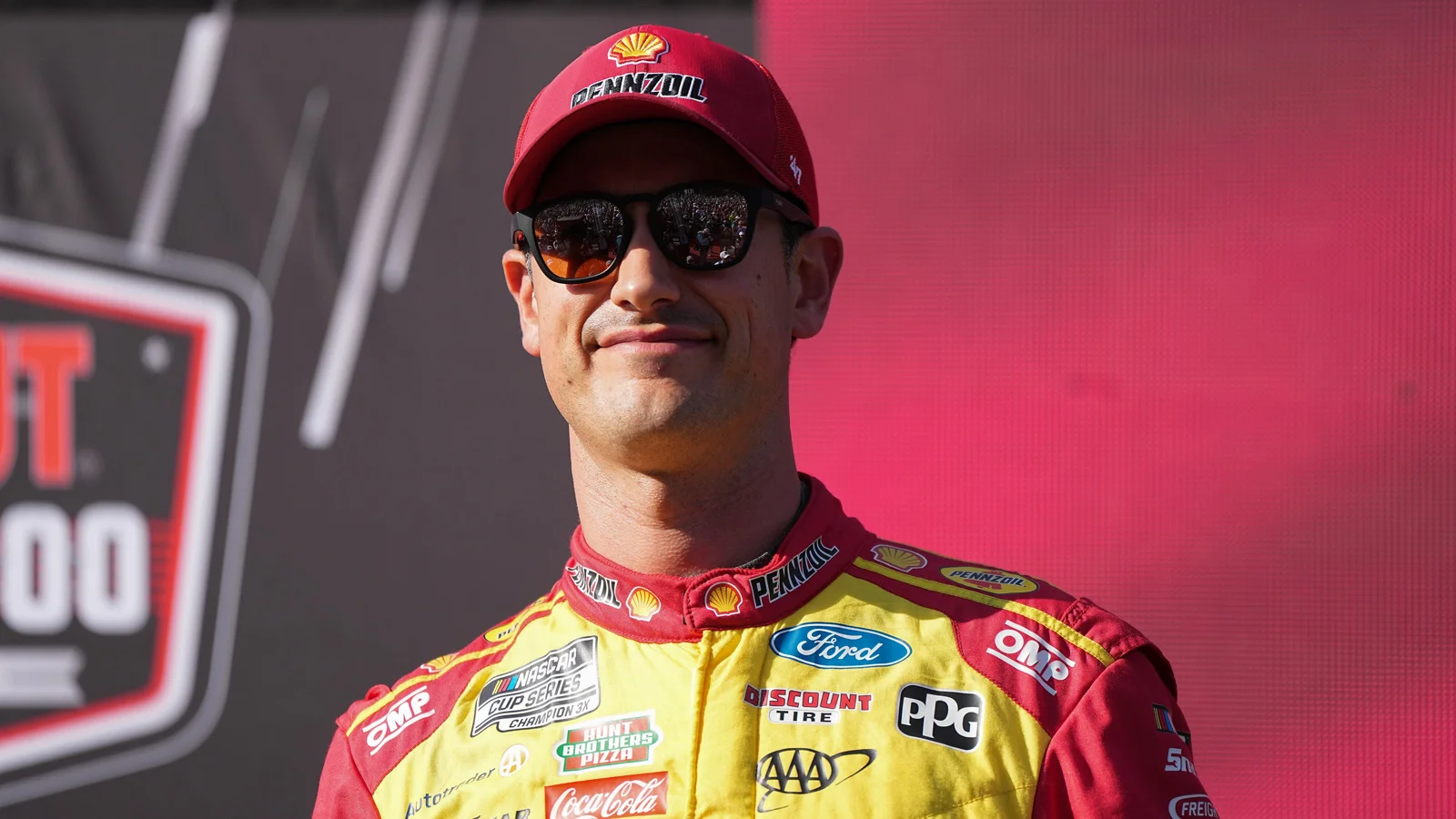Joey Logano, the Team Penske racer and three-time NASCAR Cup Series champion, recently opened up about his honest views on NASCAR fan responses during a weekend at New Hampshire Motor Speedway. His perspective on Joey Logano NASCAR fan reactions highlights an unusual mix of pride, concern, and curiosity about how fans interact with drivers—whether through passionate cheers or relentless boos.
According to Logano, fan reactions, both positive and negative, play a critical role in his experience as a driver. Far from being bothered by negative chants, Logano sees engagement from fans as an affirmation, with his real fear rooted in the possibility of being met with silence—a moment when he worries he might become irrelevant in the sport he loves.
Engagement Matters More Than Approval
Logano does not shy away from attention, whether it’s applause or criticism. He believes that any strong reaction is preferable to indifference. The absence of noise from the crowd marks his biggest anxiety, a concern he shared openly during a press event at New Hampshire.
“I dread the day they don’t say anything,”
Joey Logano, driver, Team Penske said.
This admission gives a rare glimpse into the emotional complexity behind professional racing careers. For Logano, even boos mean the crowd is invested, but silence would signal a loss of relevance and connection within the NASCAR community. He wonders if his personality and approach to racing might sometimes be misunderstood by those not closely familiar with his journey and values.
Logano recognizes that his public demeanor—often smiling, seemingly carefree—does not always align with how some fans perceive him. While loyalty from “22 fans” encourages him, he remains aware that others view him as arrogant or dismissive, judgments often shaped more by his competitive success than personal interactions.
The Journey from Young Upstart to Established Champion
Logano’s entrance into NASCAR’s elite came at the young age of 18, when Joe Gibbs Racing recruited him from Connecticut—a decision that attracted skepticism and jealousy among NASCAR followers. Many thought he hadn’t paid his dues or deserved such an early opportunity, painting him as an outsider who skipped the expected steps.
With 17 years behind the wheel, Logano has repeatedly disproven the doubters. With three Cup championships and aspirations for a fourth in the near future, he’s established his place among NASCAR’s best, consistently pushing back against early criticism through performance and determination.
He acknowledges the prominence of vocal detractors among the community, remarking on a tendency to focus more on negativity than support. However, he points to his sizable fanbase as evidence of a broader, more positive reception.
“As a society, we focus too much on the haters,”
Joey Logano, driver, Team Penske said.
He further reflects on the loyalty seen at events and in merchandise sales, expressing appreciation for those who back his number 22 car. The prevalence of yellow Pennzoil and Shell gear at tracks serves as a tangible sign of his widespread support.
“But when you look at whatever it is—sales in the merch haulers or if you just look in the grandstands—there’s a lot of yellow stuff out there. There’s a lot of Shell/Pennzoil stuff out there. Although we do talk about the haters too much, there’s a lot of 22 fans out there and I’m happy to have every one of them,”
Joey Logano, driver, Team Penske said.
A Special Connection with New Hampshire
Returning to New Hampshire Motor Speedway brings Logano a sense of comfort and belonging rooted in his childhood. He grew up racing nearly every type of car at this track—from modifieds to Legends cars—and often found success on its flat, one-mile surface. This personal history is a large part of why Joe Gibbs once took a chance on an unproven teenager, defying typical industry practices.
The significance of New Hampshire for Logano extends beyond nostalgia. After moving from Joe Gibbs Racing to Team Penske, Logano developed into the driver he always hoped to be, fulfilling the early promise seen by his mentors and himself.
“It is neat when I do come to Loudon because I am representing, I feel like, everyone who lives around here,”
Joey Logano, driver, Team Penske said.
He enjoys carrying the hopes of his home region, drawing parallels between his homecoming and the fan adulation once reserved for NASCAR legend Dale Jr. The attention and rooting interest from local supporters offer a fleeting but satisfying connection to the sport’s deeply rooted fan culture.
“You’ve got to do that, and it’s fun to enjoy that piece of it. It’s the only time I ever feel a little bit like Dale Jr.—just a little bit. It’s super cool. It’s really neat to be Dale Jr., I’ve learned,”
Joey Logano, driver, Team Penske said.
Looking Ahead: Understanding, Legacy, and Fan Loyalty
Joey Logano’s openness about his relationship with NASCAR fans underlines a complex dynamic that often goes beyond simple wins and losses. His reflections highlight the significance of athlete-fan interaction, the evolution from controversial rookie to respected champion, and the deep personal meaning of representing one’s roots on a national stage.
As the playoff season intensifies and Logano pursues a potential fourth championship, the reactions of NASCAR fans—whether cheers, boos, or even silence—will continue to shape his ongoing story, keeping the dialogue between driver and crowd at the heart of the sport’s cultural fabric.
